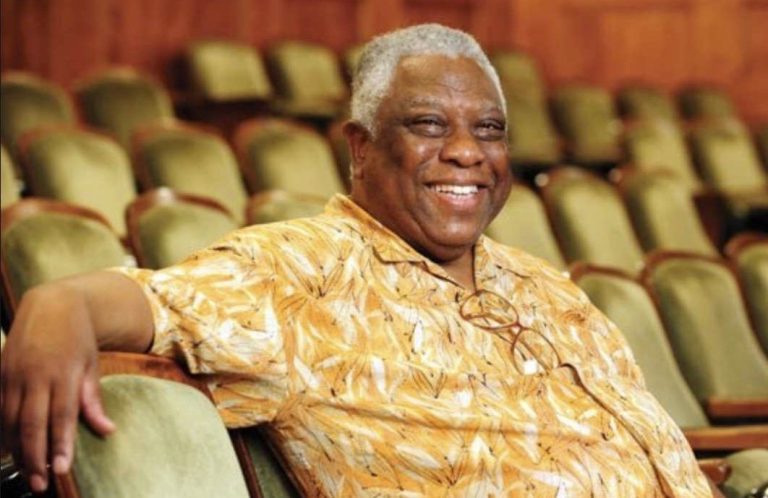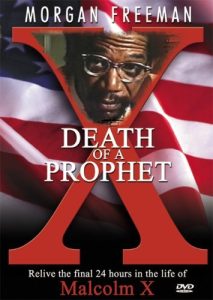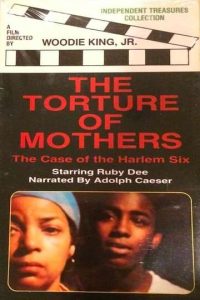Filmmaker Woodie King Jr. Comes To Medgar Evers College

When award-winning stage and screen director/producer Woodie King, Jr. comes to Medgar Evers College on Thursday, February 16, to be the subject of a panel on Black film sponsored by the Center for Black Literature, he’ll come bearing gifts. For the Medgar Evers College community, it will be in the shape of three films he directed that he’s donating to the school’s archives—1980’s The Torture of Mothers, 1981’s Death of a Prophet, and 2006’s Segregating the Greatest Generation. The idea came out of a conversation he had with Dr. Brenda Greene, the founder of the Center for Black Literature.
“About a year and a half ago Dr. Brenda Greene and I were talking and I told her these films were in storage,” King said. “Films are forever. They didn’t need to be in storage—they needed to be where your faculty, staff, and people can watch them. I made the donation of those three films and that’s how that came about.”
 Best known for founding the renowned nonprofit New Federal Theatre (NFT) back in 1970 (King retired from heading the organization two years ago), the octogenarian director/producer’s filmmaking roots date back to his work as program director with Mobilization For Youth, a defunct nonprofit theater program for youth the Alabama native joined up with shortly after arriving from Detroit in the mid-‘60s.
Best known for founding the renowned nonprofit New Federal Theatre (NFT) back in 1970 (King retired from heading the organization two years ago), the octogenarian director/producer’s filmmaking roots date back to his work as program director with Mobilization For Youth, a defunct nonprofit theater program for youth the Alabama native joined up with shortly after arriving from Detroit in the mid-‘60s.
“We had a theater and film program and we made three or four films, where I was the head of the program and we brought in people to work with these young people, who were 16 and 17 years old,” he recalled. “We were trying to keep these young people off the streets and get them into something meaningful. Three of the films won all sorts of prizes—we went all over the world. We went to the Cannes Film Festival and the Texas Film Festival. One of the films was called You Dig It and the other one was called The Game. I went to Mobilization for Youth to train 16 to 21-year-olds. They would get paid while they were in training for theater, music, dance and filmmaking. It was a burgeoning film community at that time, but young people were left out. So we included them and they succeeded.”
Mobilization For Youth helped lay the foundation for New Federal Theatre. When King founded NFT, the focus was on live performances and during its five-decade-plus existence through today, it has been a fertile training ground for myriad nationally known Black playwrights including Ron Milner, Ed Bullins and Ntozake Shange. The NFT also proved to be home for a dizzying stable of actors including Morgan Freeman, Denzel Washington, Jackée Harry, Debbie Allen, Phylicia Rashad, Glynn Turman, Samuel L. Jackson, Chadwick Boseman and Laurence Fishburne.

King’s cinematic directorial debut was 1976’s The Long Night, an adaptation of the 1958 Julian Mayfield novel of the same name.
When it came time to shoot The Torture of Mothers, King shifted gears focusing on the 1968 Truman Nelson investigative narrative book that explored the case of the Harlem Six, a 1965 case where a sextet of local teens took the rap from the New York City Police Department for the murder of a local clothing merchant. King followed that with 1981’s Death of a Prophet based on the 1965 assassination of Malcolm X and featuring Morgan Freeman in the title role. King’s first choice was Denzel Washington, who was coming off playing the late Civil Rights leader in the New Federal Theatre production of When the Chickens Came Home to Roost. An offer to play a major role in the NBC medical drama St. Elsewhere meant Washington would need to wait a decade to play Malcolm X for filmmaker Spike Lee while King had to pivot to Freeman. One stipulation by the actor meant the man born Malcolm Little wasn’t directly referenced in the movie.
“Morgan had tremendous success with a New Federal Theatre production called The Connection,” King recalled. “He was on a hit series—he had not become a big star yet. He was on The Electric Rounding out the triumvirate of films King is donating to the Medgar Evers College archives is 2006’s Segregating the Greatest Generation. Inspired by stories he heard from a number of World War II veterans of color including longtime creative collaborator Ossie Davis, King shot this self-described essay documentary using archival footage and interviews with 16 participants between the ages of 70 and 90 talking about World War II and how it changed their lives. For King, it was a sobering experience.
“All I had to do was just ask them these questions and then find things they saw in newsreel cameras and use that footage in the film,” King said. “Ossie Davis had been stationed at a camp in America that was just as horrific for him as going overseas. The racism emanated in both places, but they were in World War II fighting for their country. I’m a big patriot but It’s part of systemic racism. You can be fighting to save your country and your country can have your foot on your neck at the same time.”
Justifiably proud of the work he’s going to be discussing at the Medgar Evers College film panel, King’s biggest takeaway in looking back at these movies is how they continue to resonate to this day.
“I’m happy that people still love these movies in 2023,” he said. “You don’t see a time period put on them. Even though I made [most of] them in the ‘70s and ‘80s, you don’t see them stamped with a ‘70s and ‘80s imprimatur. I think that’s a great compliment when something resonates now as it did then.”
The Center for Black Literature will present a panel on Black American film in discussion with the preeminent director and filmmaker Woodie King Jr., founder of the New Federal Theatre, Our Times Press publisher David Greaves and guests. The event is taking place on February 16, from 6:30 to 8 p.m. at the Edison O. Jackson Auditorium located at 1638 Bedford Ave. in Crown Heights.

